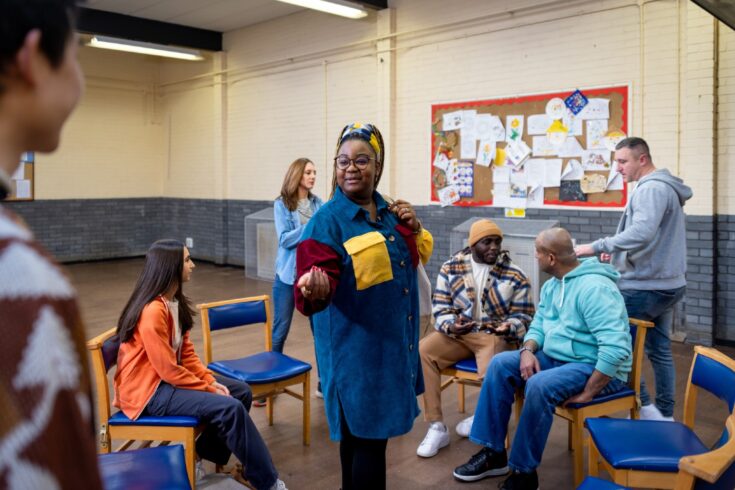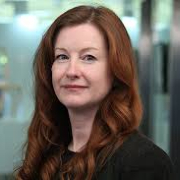These networks, based across all four nations of the UK, are designed to build capacity, capability and connectivity for place-based, community-led research.
This latest phase of funding represents an expansion of our plans for this programme, with funding increasing from £4 million to more than £9 million over the next five years.
Putting funding in the hands of communities
The programme is testing a radical new approach by investing in communities so they can lead, direct and contribute to the research that matters to them.
We launched this programme in response to a call for more sustainable and equitable models of community engagement in research and innovation – people’s experience of research is often that it is done to them, rather than with, by or for them.
This can lead not only to research that misses out on the insights and knowledge of communities, but to a disconnect and a distrust between communities and publicly-funded research and innovation across the UK.
By supporting community-led networks that combine the knowledge and assets of communities with the expertise of universities, local authorities, charities and governments we aim to challenge this dysfunctional relationship.
A collaborative approach
Through a collaborative approach the networks will build the foundations for research programmes that give communities more power to direct research to tackle clear societal challenges – how it’s done, who owns it and how it’s used.
For example, the East March Community Research Network, based in Grimsby, is seeking to train and upskill community members to research the complex web of social, economic, environmental and health challenges impacting the lives and spaces of a disadvantaged and stigmatised neighbourhood.
And on the Isles of Scilly a partnership between the Isles of Scilly Community Venture Community Interest Company, the Isles of Scilly Wildlife Trust, Five Islands Academy and the University of Exeter will work to empower the community to make their research and discovery ambitions a reality.
On the right track
In the first phase of this programme, we funded 25 groups across the UK to explore how local organisations, from across multiple sectors and scales, can make research and innovation work for their communities.
When we launched the programme, we didn’t know who would apply, what sort of networks they might form and whether communities would see the value in the approach, but the last 18 months have demonstrated that we are on the right track.
We’ve seen that community organisations are not only enthusiastic about getting involved in research, but that they are a significant (but currently undervalued) source of knowledge, skills and connections that can enhance research and its impact in ways that would not otherwise be possible.
New pathways to public good
We want to build a thriving, inclusive research and innovation system that connects discovery to prosperity and public good, in every part of the country.
These networks demonstrate that there is an opportunity to short-circuit this process. The community sector is often much closer to people feeling the effects of entrenched social and economic issues than traditional centres of knowledge and expertise.
These communities see the power of knowledge to help them change their places for the better, but current, institution-dominated approaches tend to lead to research and policy interventions misaligned to the needs of the people whose lives they seek to understand and improve.
There is a need for new ways into research for communities and we are supporting the networks to establish these paths, but there is also a need for institutional change. Much like universities have learned to connect with business to drive economic growth, there is a need to create interconnected research agendas with civic and community organisations to drive social and cultural change.
Connecting people across cultures and systems
While we know there is great potential in the work we are supporting, we’re also attuned to the challenges of trying to connect people across very different cultures and systems, and the tensions this can create. Questions of who owns, directs and benefits from research and innovation are not straightforward – the power dynamics at play are significant.
However, we’ve seen a willingness to try new things from a huge range of organisations involved in the Community Research Networks programme, and we are open to a wide variety of configurations and approaches. From universities and community foundations to city farms, housing associations and NHS trusts, there’s a real sense that this work is worth committing to, and that it will lead to positive outcomes.
Even in the early phases, we’ve seen community groups advising universities on their strategies, partnering with researchers on funding bids, influencing local policy and helping people return to work. And alongside specific impacts, we are seeing a renewed sense of agency and power that community-led research can instill, with people feeling more confident and capable to work with others towards positive change for their place.
A network of networks
Alongside funding for the networks, The Young Foundation will run the Community Research Networks Strategic Support Hub. This will provide crucial support to the networks, enabling them to deliver effectively and with integrity, learn together and share their stories and impact with the sector.
The hub will also identify and showcase exciting examples of community-led research from across the UK and beyond, as well as convene other people and organisations interested in supporting communities to play a greater role in research and the innovation it can give rise to.
We encourage anyone with an interest in this work to visit the online hub and sign up to our mailing list. We will be sharing news from the networks across the next five years and there will also be opportunities to contribute content to the site.
We are excited to be starting out on the next leg of this journey and are very keen to see how the networks develop, what they learn and how we can work together to create better outcomes for everyone through collaborative, inclusive research.








